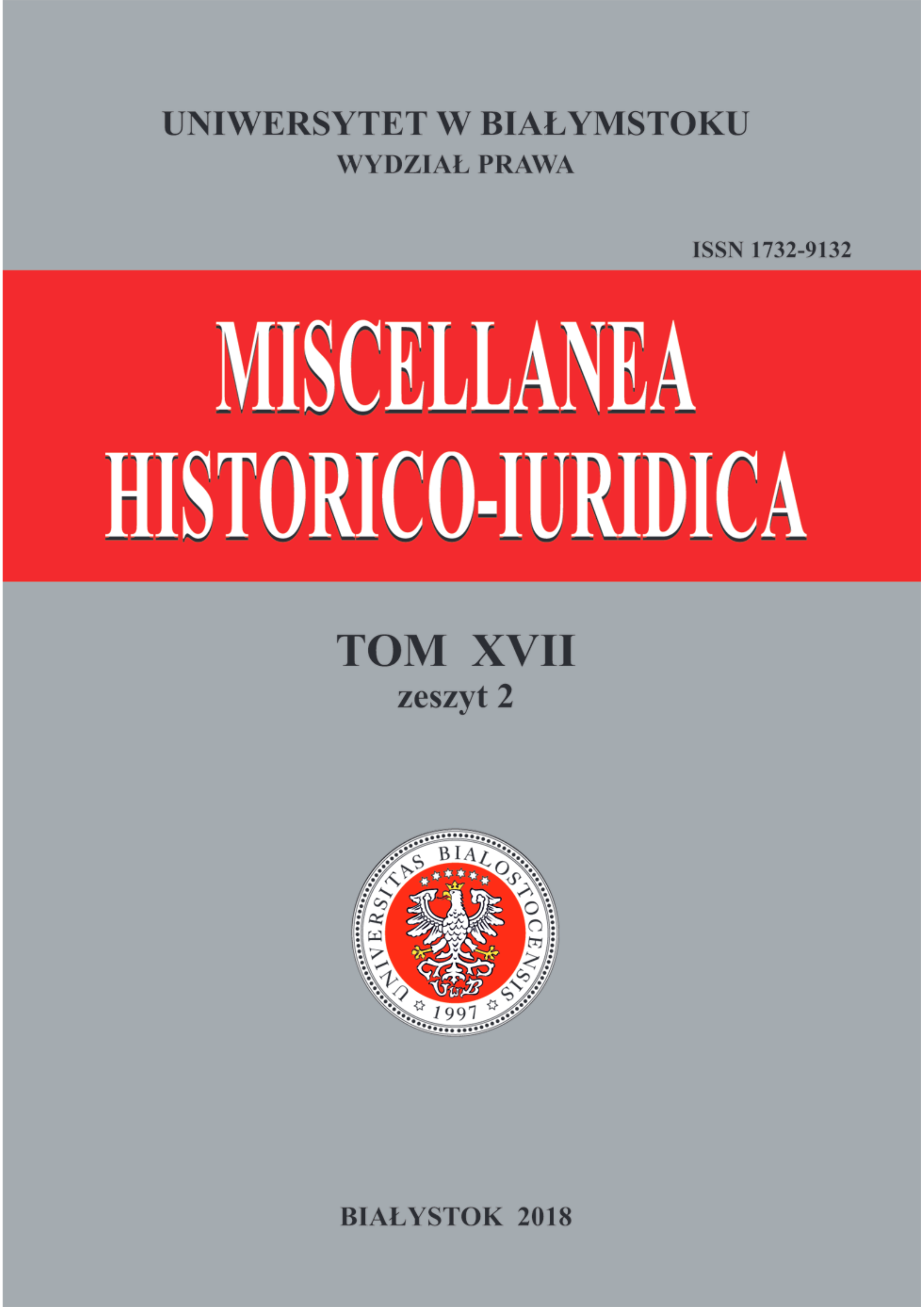A few remarks in the margin Tit. Ulp. 20.16
Keywords:
slave, will, public slave, Roman lawAbstract
In Roman law, a precondition for testamenti factio activa was having freedom. In the Classic and Justinian Law the major matter that was considered while determining succession in case of death, was whether the testator was a free person. This generally does not raise major controversies. Statements of classic jurists, amongst others, refer there to in Justinian Digests and imperial constitutions. It is not affected by the fact that in the preserved source material of Roman law, one can find a fragment from Titulae ex corpore Ulpiani, which grants public slaves the capacity to manage half of their peculium, should they have any. Such a possibility was not present for private slaves even if they possessed peculium profecticium. They also could not obtain the consent of their owner in this scope to carry out such legal action, because the ability to draw up a testament was classified in public law, not private law, which cannot be changed on the grounds of any agreements. However, this privilege is not known to Justinian law. Again, the privilege of testamentary capacity for public slaves is granted by the Byzantine emperor – Leon VI Philosopher.
References
Biondi B., Istituti fundamentali di diritto ereditario romano, Milano 1948.
Biondi B., Successione testamentaria e donazioni, Milano 1943.
Bonfante P., L’Origine dell’ hereditas dalla successione sovrana le critiche al concetto, Milano 1905.
Fadda C., Concetti fondamentali del diritto ereditario romano, Milano 1949, t. 1 i 2.
Fögen M.T., O legislation und kodifikation des kaisers Leon VI.
Godek S., Pierwiastki romanistyczne w prawie spadkowym I Statutu litewskiego, „Zeszyty Prawnicze” 2003, t. 3.2.
Hernández Gil A., Obras completas, t. 4, derecho reales, derecho de sucesiones, Madrid 1989.
Index interpolationum quae in Iustiniani Digestis inesse dicuntur, red. E. Levy, E. Rabel, t. 2, Weimar 1929.
Kursa S., Testator i formy testamentu w rzymskim prawie justyniańskim, Warszawa 2017.
La Pira G., La successione ereditaria intestata e contro il testamento in diritto romano, Firenze 1930.
La Rosa F., I peculi speciali in diritto romano, Milano 1953.
Pampaloni M., Studi sull’istituzione di erede nel diritto romano e odierno, Torini 1888.
Piętak L., Prawo spadkowe rzymskie, Lwów 1882.
Rinolfi C.M.A, Servi e religio, http://www.dirittoestoria.it/9/tradizione-Romana/Rinol-fi-Servi-religio.htm.
Robbe V., Diritto ereditario romano. I principi generali e fondamentali, Napoli 1962.
Rouland N., A propos des servi publici populi romani, „CHIRON” 1977, t. 7.
Santalucia B., Diritto ereditario romano. Le fonte, Bologna 1999.
Segré A., Ricerche di diritto ereditario romano, Roma 1930.
V. Scialoja, Diritto ereditario romano. Concetti fondamentali, Roma 1922.
Signes J., Codoñ, The corpus of Leo’s Novels. Some suggestions concerning their date and promulgation, https://www.academia.edu/2151786/the_corpus_of_Leo_s_Novels._Some_suggestions_concerning_their_date_and_promulgation.
Solazzi, Diritto ereditario romano, t. 2, Napoli 1933.
Sudi F., Les esclaves et les affranchis publics dans l’occident romain (IIe si`ecle avant J.-c. – IIIe si`ecle apr`es J.-c.); Université Blaise-Pascal – clermont II ecole doctorale lettres, sciences humaines et sociales C.H.E.C.
Świrgoń-Skok R., Beneficia spadkowe w prawie rzymskim, Rzeszów 2011.
Voci P., Diritto ereditario romano, Milano 1956.
Watson A., The law of succession in the later roman republic, Oxford 1971.







